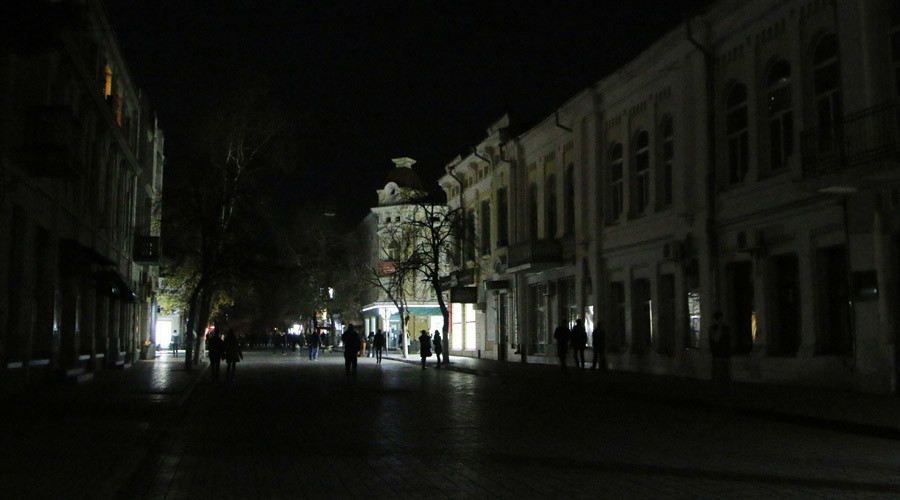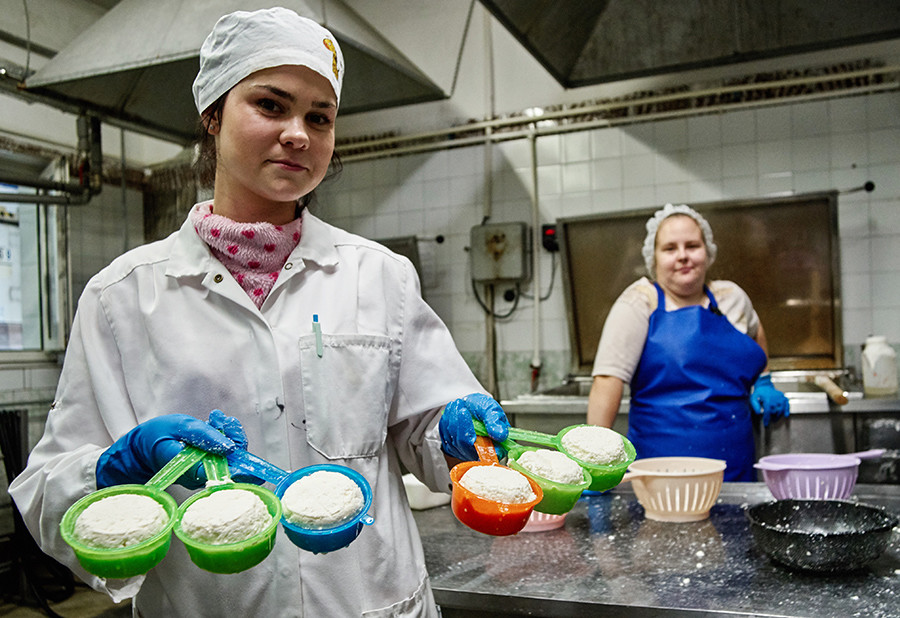Protests also occurred in 12 other Greek towns and cities, with pensioners holding placards and chanting “We can’t live on 300 euro.”
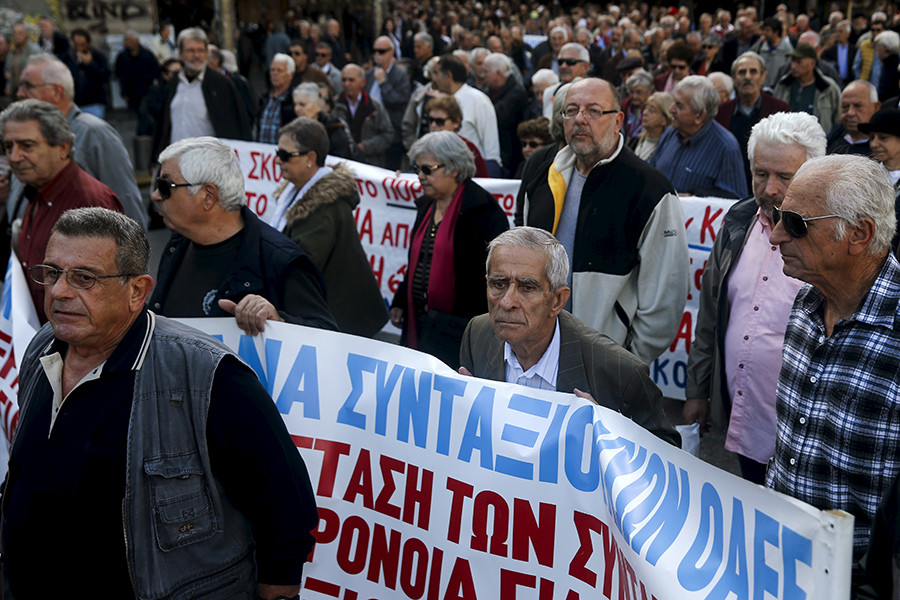
Pensions are a vital source of income for families in Greece, and have been cut repeatedly during the last years of austerity.
READ MORE: Athens strikes deal with creditors to unlock €12bn – minister
“Pensions will be cut. The cuts in health care are huge. We’re at the point of not having health care, of not having medication. We can’t just idly stand by,” said Yannis Antoniou, head of a bank pensioners association.
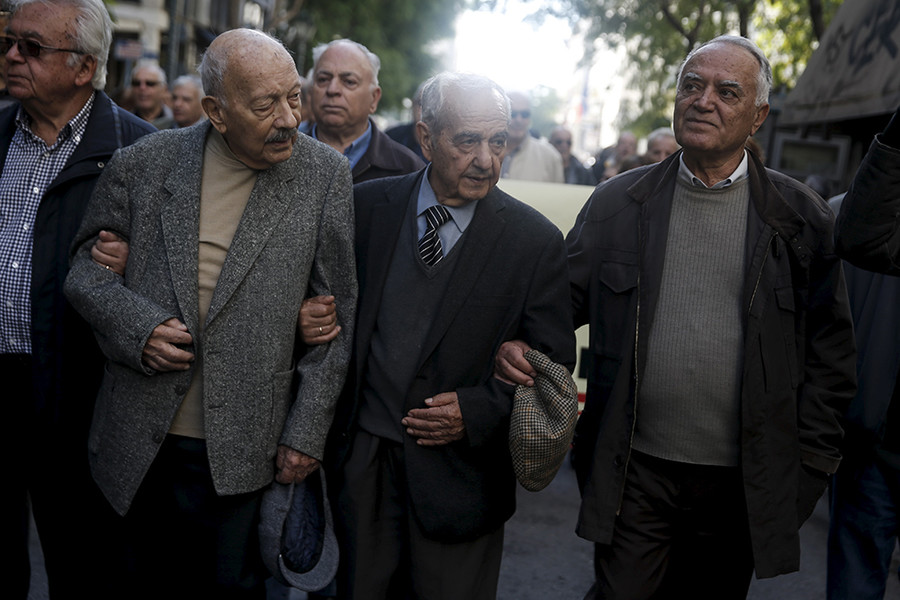
Pensioner Christos Kirikas told Reuters that the administration of Greek Prime Minister Alexis Tsipras is to be blamed for the ongoing economic crisis.
“They need to hear us. They should be ashamed of themselves, these parties on the left who are starving us. I worked for 50 years of my life and now we are going hungry. Why is this happening?” Kirikas said.
Tsipras called on the leaders of the Greek opposition parties to hold an emergency meeting to seek consensus on pension reform.
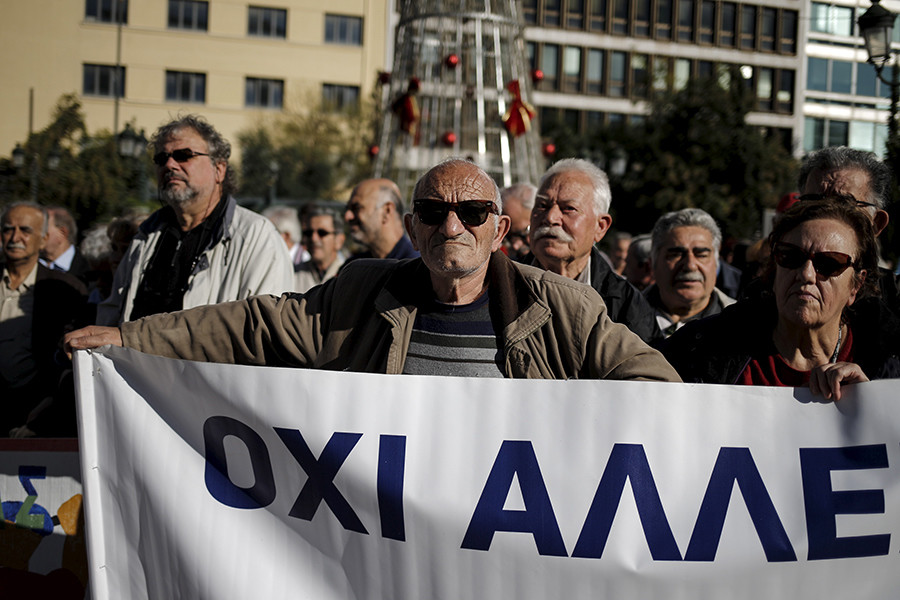
The nation’s discontent has been growing since the government agreed to accept unpopular terms of a €86 billion bailout. It took a long time for Athens to strike a deal with the creditors who demanded large-scale reforms in the pension scheme and labor market as well as changes to the tax system and other austerity cuts. In August, international lenders (the IMF, the ECB and the European Commission) agreed to a third bailout program for crisis-stricken Greece.
READ MORE: €86bn loan over 3 years: Eurogroup agrees to launch third bailout program for Greece
Earlier this month, the country’s administration approved a law, scrapping most early retirement benefits, raising the retirement age and increasing contributions for healthcare. The regulation was passed to unlock the bailout funds and forced thousands of angry workers out on the streets.
Article source: https://www.rt.com/business/323653-greece-pensioners-protests-austerity/?utm_source=rss&utm_medium=rss&utm_campaign=RSS
